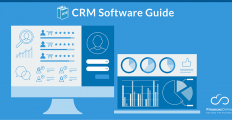In today’s fast-evolving academic landscape, institutions of higher learning face growing challenges in recruiting, retaining, and empowering faculty members. As the heart of any college or university, faculty contribute significantly to shaping students’ futures and advancing institutional missions. However, traditional human resources (HR) practices often fail to meet the demands of modern faculty needs. To truly raise the bar, campuses must adopt modern HR systems that foster faculty success and growth, ensuring a competitive and supportive environment for educators.

The Need for Modern HR Systems in Academia
The academic world is undergoing a seismic shift. Factors such as increased competition for talent, demands for diversity and inclusion, and the need for flexible work arrangements are reshaping how institutions operate. Faculty members no longer view their roles solely as educators; they’re also researchers, community leaders, and institutional advocates. To meet these multifaceted needs, HR systems must be agile, data-driven, and people first.
Modern HR systems leverage technology to streamline processes, provide data insights, and create tailored solutions for faculty development. They go beyond payroll and benefits management to include strategic initiatives such as professional development, performance tracking, and well-being support.
Key Features of Modern HR Systems
Modern HR systems are designed to meet the unique challenges of academic environments. Here are the key features that distinguish them from traditional systems:
- Integrated Talent Management Comprehensive talent management is critical in academia. Modern HR systems offer tools to streamline recruitment, onboarding, and retention. By utilizing applicant tracking systems and AI-driven analytics, institutions can identify top talent efficiently and reduce hiring biases. Furthermore, these systems provide personalized onboarding programs, helping new faculty members adapt quickly and feel valued from day one.
- Performance Management and Goal Alignment Faculty evaluations often involve complex criteria, from teaching effectiveness to research output. Modern HR platforms provide continuous feedback tools, goal-setting modules, and peer-review capabilities. This helps align individual contributions with institutional objectives, creating a culture of accountability and achievement.
- Professional Development and Lifelong Learning Investing in faculty growth is non-negotiable for academic success. Modern HR systems enable personalized learning paths, offering access to workshops, online courses, and mentorship programs. Faculty members can track their professional development progress, ensuring they remain competitive and fulfilled in their roles.
- Diversity, Equity, and Inclusion (DEI) Initiatives Promoting diversity is a cornerstone of a thriving academic institution. Advanced HR systems provide tools to analyze demographic data, monitor hiring trends, and assess equity gaps. They also offer training programs and resources to foster inclusive campus cultures.
- Faculty Well-being and Support Burnout among educators is a pressing issue. Modern HR systems include wellness tools such as mental health resources, stress management programs, and flexible scheduling options. By prioritizing well-being, institutions can enhance faculty satisfaction and reduce turnover.
Benefits of Modern HR Systems for Faculty
Adopting modern HR systems brings measurable benefits to faculty and institutions alike. Here are some of the key advantages:
- Enhanced Faculty Engagement: By automating administrative tasks, HR systems free up time for faculty to focus on teaching, research, and innovation. Real-time feedback and clear career pathways boost morale and engagement.
- Improved Retention Rates: Institutions that invest in faculty growth and well-being are more likely to retain top talent. Modern HR systems make it easier to identify and address factors contributing to attrition.
- Data-Driven Decision-Making: HR analytics offer valuable insights into workforce trends, helping institutions make informed decisions about recruitment, development, and resource allocation.
- Stronger Institutional Reputation: A modern approach to HR demonstrates a commitment to faculty success, enhancing the institution’s reputation and competitiveness in attracting top-tier talent.
Implementing Modern HR Systems: Best Practices
Transitioning to a modern HR system requires careful planning and execution. Here are some best practices to ensure a smooth implementation:
- Assess Institutional Needs Conduct a thorough assessment of existing HR processes and identify areas for improvement. Involve faculty members in the evaluation process to ensure their needs are addressed.
- Choose the Right Technology Select an HR platform that aligns with your institution’s goals and budget. Consider features such as scalability, ease of use, and integration capabilities with existing systems.
- Train and Support Staff Provide comprehensive training for HR staff and faculty on using the new system. Create a support network to address questions and troubleshoot issues during the transition.
- Foster a Culture of Openness Communicate the benefits of the new HR system to faculty and staff. Highlight how it will enhance their professional experiences and address their specific challenges.
- Monitor and Optimize Continuously evaluate the system’s performance and gather feedback from users. Use this information to make necessary adjustments and improvements.
Case Studies: Success Stories in Modern HR Systems
Many institutions have already embraced modern HR systems with great success. For example, the University of California implemented a unified talent management system to streamline recruitment and performance reviews across its campuses. As a result, the university significantly reduced hiring timelines and increased faculty satisfaction.
Similarly, Arizona State University adopted an AI-powered HR platform to enhance faculty development programs. The system’s personalized learning paths and mentorship opportunities helped faculty members achieve their professional goals, contributing to the university’s reputation as a leader in innovation.
The Future of HR in Academia
As academia continues to evolve, the role of HR systems will become even more critical. Emerging technologies such as artificial intelligence, machine learning, and predictive analytics are poised to revolutionize how institutions manage their workforce. These advancements will enable even greater customization, efficiency, and impact.
Moreover, the focus on holistic faculty support—encompassing career growth, mental health, and work-life balance—will remain at the forefront. Institutions that prioritize these aspects will not only thrive but also set new standards for excellence in higher education.
Conclusion
Modern Human Resources (HR) systems are transformative tools that enhance organizational efficiency, employee satisfaction, and overall productivity. These systems integrate advanced technology, such as cloud computing and artificial intelligence, to streamline HR processes like recruitment, onboarding, payroll, and performance management. By automating repetitive administrative tasks, HR professionals can focus on strategic initiatives that drive business growth, such as talent development and workforce planning.
Modern HR systems also improve data accuracy and accessibility, enabling organizations to make data-driven decisions. Real-time analytics and reporting tools help identify trends, predict workforce needs, and measure employee engagement, which is critical for retaining top talent. Moreover, these systems often include self-service portals, empowering employees to access their records, update personal information, and apply for benefits without relying on HR staff, fostering a sense of autonomy.
Another key advantage is compliance. Modern HR systems are equipped to handle complex regulatory requirements, ensuring organizations stay compliant with labor laws and industry standards. This reduces the risk of legal issues and penalties.
Additionally, these platforms support remote and hybrid work models by providing tools for virtual collaboration, performance tracking, and employee engagement, making them indispensable in today’s dynamic work environment. Overall, modern HR systems are essential for organizations aiming to remain competitive and adaptive in a rapidly evolving business landscape.
Modern HR systems are no longer a luxury for academic institutions; they are a necessity. By adopting advanced tools and practices, colleges and universities can empower their faculty to achieve unparalleled success and growth. From fostering diversity and inclusion to promoting well-being and development, the benefits of these systems are far-reaching.
As institutions strive to raise the bar on campus, investing in modern HR systems will be a pivotal step toward creating an environment where faculty can thrive, students can excel, and the academic community can flourish.























Leave a comment!